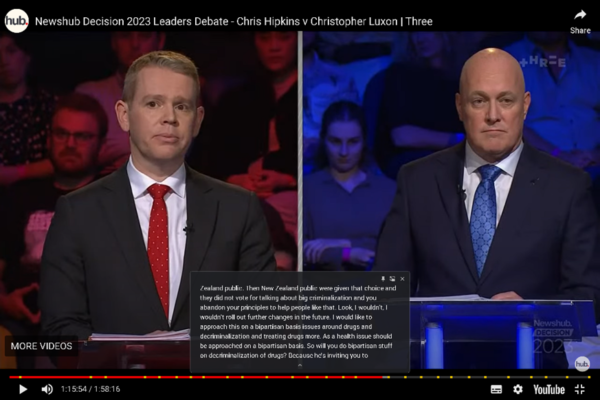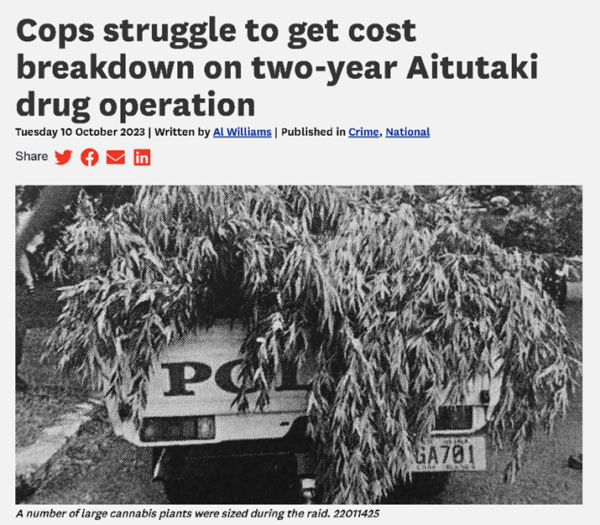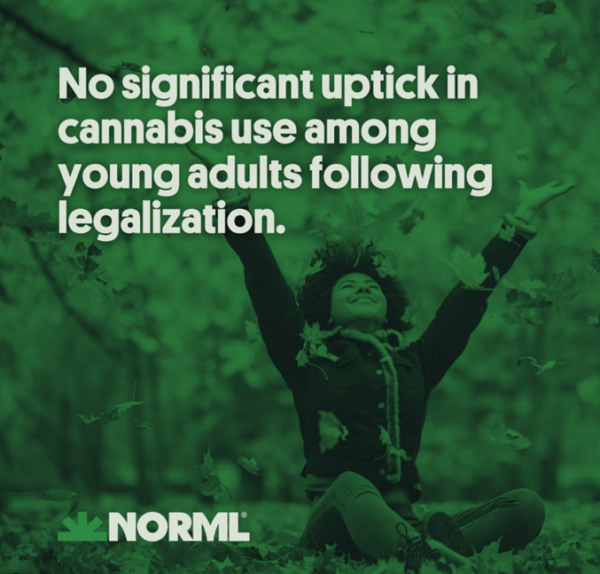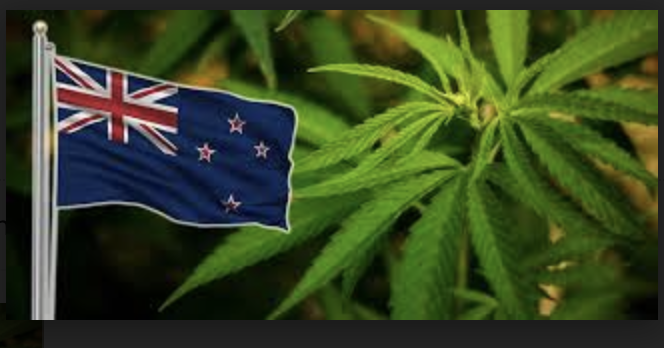This and more on Marijuana Media with Chris Fowlie from NORML and Jonny from bFM Drive – thanks to The Hempstore!
[Stream the pot-cast of this show on 95bFM.com]
Cannabis in Limboland
We began the show with a sigh, struggling to find any positives from the election results. Set to lead the next Government, National Leader Chris Luxon says he’s “happy with the current settings” for drugs. But National are also promising to be “tough on crime”, and it’s hard to see them progressing further cannabis law reforms.
National’s health spokesperson Shane Reti wanted a much tighter medical cannabis scheme with no access to flower. But he also supported decriminalisation.
Transport spokesperson Simoen Brown is promising to ramp up testing drivers for drugs, using oral swabs which do not detect impairment but recent exposure to selected drugs (and record false positives 20% or more of the time).
National’s partner Act is promising to send more people to jail. New Zealand first says all social issues should go to referendums.
It wasn’t all gains for conservatives. Dewi Preece at 1News reports the data shows Tamaki, previously held by National’s ultra-conservative Simon O’Connor, is more liberal than many people think. The seat will now be held by ACT’s Brooke van Velden, who voted Yes.
The 1News report quotes the Vote Compass survey which showed 50% of the electorate either strongly or somewhat agreed that cannabis should be legalised – matching the referendum result. Not as conservative as many thought and a warning to National against going too socially conservative.
In an analysis of what of Labour’s legacy will remain, Henry Cooke at The Spinoff notes the incentive for the status quo is strong, so even under an “evangelical pro-life Christian” such as Luxon, measures like legalised pill testing at festivals may not be rolled back.
National opposed the policy but might not think the fight is worth it. Plus Luxon said he considered drugs a health, not crime, issue during the leaders’ debates.

Labour spent the previous term scared of any change – including doing anything to fix the police discretion amendment that NZ First had hobbled the previous term, or widening medicinal access with herbal provisions and extending the palliative amnesty to family and caregivers, let alone decriminalising cannabis.
Instead, Labour pursued “a pseudo-decriminalisation of cannabis, allowing it for medicinal purposes and telling police to use their discretion before charging people for use.”
Labour’s left-wing colleagues were much more active in their support for cannabis law reform – and did well at the election. The Spinoff, again: “Te Pāti Māori wants to decriminalise all drug use; the Greens also want to revisit drug laws and legalise personal use of cannabis.” Both increased their number of MPs.
I’m especially stoked to see my old mate Steve Abel elected on the Greens List and representing West Auckland. And in Auckland Central, where The Hempstore is located, incumbent Chlӧe Swarbrick increased her majority to become the first Green MP to retain a seat. Being the face of cannabis law reform doesn’t seem to have hurt Chlӧe.
CBD to be available over-the-counter in pharmacies
Three days after the election, the Ministry of Health announced cannabidiol – the non-psychoactive medicinal compound extracted from cannabis and proven remarkably safe, non-toxic and effective at reducing the symptoms from a myriad of conditions – will finally become available over the counter here.
The change from a prescription-only medicine to a restricted (pharmacist-only) medicine will bring New Zealand in line with Australia, which made a similar change in December 2020. CBD is also over the counter in the US, Canada and Europe. The Gazette Notice is here. In a statement the MOH said:
While no CBD products are currently approved in New Zealand, this change means that from today, any low-dose CBD product which becomes approved in the future can be supplied by registered pharmacists to patients over 18 years. No products in this category are available in Australia either at this stage.
This classification change will mean that if in the future, a CBD product is shown to have a positive risk-benefit balance in terms of safety and efficacy, and is approved by Medsafe as meeting both national and international standards, it can be supplied at a pharmacy following consultation between the patient and pharmacist.
Currently, under New Zealand’s Medicinal Cannabis Scheme, CBD products may be prescribed to any patient for any reason. Although they meet the NZ Minimum Quality Standard (largely the same as pharmaceuticals), these CBD products are considered unapproved medicines. They must be prescribed – unlike most countries – and they also can’t be marketed.
The change is limited to “low dose cannabidiol”, defined as no more than 150mg per day or 4.5 grams in total in the pack (it will also be restricted to adults aged over 18).
For over-the-counter sales to happen, a CBD product will need to go through the regular medicines approvals process. This can take several years. Australia made the change almost three years ago and no CBD products are fully approved yet.
There is a way to truncate the process, and MOH officials have already suggested this to the medicinal cannabis industry: apply for provisional approval. If provisional approval is granted the medicine is treated like an approved medicine while any remaining trials are completed. It can be made available, sooner.
A medicine containing CBD – described by researchers at the University of Sydney as “exceptionally safe” even at high doses – should have little problem passing the provisional approval and going on sale over-the-counter.
Low dose cannabidiol products are commonly available over-the-counter overseas, including convenience stores and gas stations in the USA, and supermarkets in the UK.
When in Europe last year I could easily buy CBD products in every country, from sodas to balms to very tasty CBD buds. People achieve the more effective higher doses by simply taking multiple doses per day – and when it’s food grade, it’s cheap.
Local coverage:
- Andrew Bevin at Newsroom Pro reports Medsafe overrides its Medicines Classification Committee on cannabis. “The committee advised against CBD over-the-counter sales, but Medsafe has now approved it.”
- The Spinoff (The Bulletin: Medsafe approves over-the-counter CBD sales) says “Hold your horses, though, as there are no CBD products currently approved for use in New Zealand. It’s a bit complicated.”
- Nicholas Pointon at NBR (Local medical cannabis companies welcome over-the-counter sales) writes “it appears there’s a long road ahead before locally produced medicines can be purchased over the counter.”
Cook Islands medicinal cannabis legislation in December
The Cook Island News reports legislation supporting the availability of medicinal cannabis in the Cooks Islands will be tabled in Parliament in December. The New Zealand dependency held a referendum last year in which 64% voted to legalise medicinal cannabis.
Following a fact-finding mission to New Zealand, the Cook Islands Referendum Committee has completed its report and delivered their recommendations to the government. I met with committee members Marie Francis and pharmacist Andrew Orange when they visited Aotearoa.
The reports indicate the legislation may take take some aspects from our scheme – for example equivalent product standards, allowing people to travel with prescribed cannabis between here, there and Australia – and they will also incorporate additional aspects to “enable a regime that fits our aspirations”.
This could include allowing locally grown herbal remedies and, mindful of the importance of tourism to their economy, cannabis-based wellness resorts.
However, in a series of letters to the Cook Island News, local cannabis campaigner Steve Boggs said there had been “zero” public consultation, as promised by Ministry of Health Secretary Bob Williams.
“How can the committee know the desires of the Cook Islands people for a medicinal cannabis plan when they never provided for a public forum to discuss what we are hoping for?” wrote Mr Boggs.
He pointed out police in the Cooks continue to hunt cannabis growers including this lengthy two-year Aitutaki investigation which may have targeted medicinal cannabis distributors.

In another letter to the paper, Mr Boggs said “When will these zealots in our criminal justice system stop their dangerous and damaging effect of hunting down and persecuting medicinal cannabis users who are doing nothing wrong because the Cook Islands Government cannot provide them with a legal pathway to take their medicine?”
The medicinal cannabis reforms are expected to pass next year. The Cook Islands will join Vanuatu, French Polynesia Fiji, Guam and Hawaii as Pacific nations which already have, or are moving towards, some form of legal medical access.
Sensimilla studies
Consume cannabis to reduce meth: NORML reports polydrug users frequently engage in the use of cannabis in order to decrease their consumption of stimulants like crystal methamphetamine, according to data published in the journal Addictive Behaviors. 78% of stimulant users reported using less during periods of cannabis use.

The sky didn’t fall in Canada: The adoption of cannabis legalisation in Canada has not been associated with significant upticks in either marijuana use by young people, or in the percentage of people experiencing adverse cannabis-related consequences, according to longitudinal data published in the journal JAMA Open Network. Those were, of course, two of the biggest fallacies put forward by the Nope campaign. They claimed underage use would go up, and that there would be more problems with people using legal cannabis – both disproven by this study. Sigh.
Coming up:
- New at The Hempstore it’s “shirts, shorts and shits”, our summer range of hemp t shirts, short sleeve shirts and shorts, plus a colon cleanse tea.
- Substance Testing at The Hempstore First Thursday of every month thanks to the NZ Drug Foundation, with the next on Thurs 2nd November, or find a clinic here.
- Auckland J DaySaturday 2nd December in Albert Park (details here).
Marijuana Media airs every Thursday at 4:20pm on 95bFM, with your hosts bFM Drive’s Jonny and Chris Fowlie from The Hempstore. Stream or download the pot-cast for this show here or hundreds of previous Marijuana Media shows at 95bFM.com (or via iTunes / RSS feed). Thanks to The Hemp Store!





Chris – Thank you again…go the Cook Islands
Bugger Pot. Gimme an E.
Simoen Brown. Did anyone else think we’d become intimidated by a little mouse-man. What were the pro natzo nut jobs thinking when they voted for that small, verminous weasel?
Who’s up for moving to Portugal?
Indeed & agree with Nathan….Thank you & the same thoughts from me too Chris.
OMG. You must check this out. Pathetic yet hilarious.
Via Boing-boing
Posting the worst medical takes.
https://twitter.com/BadMedicalTakes
Is the real reason why Pot’s illegal got something to do with being able to find shelves and shelves full of highly addictive and cheap to manufacture alcohol in our super market cartels? Serious question being asked by a friend.
You are onto something there. I used to vote for prohibition even when I did drink so it is a backward step to not have the option (or the state purchase & control) anymore when voting. The chance to profit by selling recreational drugs needs to be privatised while the state picks up the social cost as it is easier to avoid tax than develop productive industries that benefit all of us is how the best democracy money can buy works.